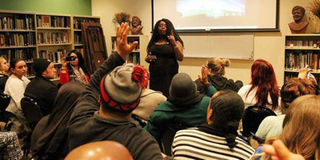Start a career as a life coach

For one to be successful as a life coach, they must have studied counselling psychology.
What you need to know:
- Times have changed and so has the professional landscape.
- Today, people are earning from services such as counselling and life coaching that used to be free of charge.
After graduating in 2012 with a Bachelors degree in civil engineering from Kyambogo University, Mustafa Ssebyala sought for inspiration by reading self-help books. The other reason Ssebyala sought inspiration was because some of his friends were failing to balance their personal lives and careers.
“Some of them had great careers but their personal lives were falling apart and I did not want to end up in a similar situation. It is why I sought guidance from these books,” he says.
In addition to the books, Ssebyala was also receiving help from mentors who guided him on his life’s journey. Over time, he felt the burning urge to share some of the things he was learning with other people as a way of helping them to succeed in their personal and professional lives.
“So, I started working as a life coach by meeting people both in and outside the country and guiding them through life transition, helping them refocus on their thinking as well as giving them a push to reach their life’s potential,” he says. Ssebyala has been a life coach for almost five years now.
What is life coaching?
It is a professional that involves supporting people to find solutions and developing strategies for the different life challenges they face, says Noeline Kirabo, a life coach and founder of Kyusa, a nonprofit organisation that empowers youth who have dropped out of school to turn their passion into sustainable careers.
“The interesting bit about life coaching is that I do not have to know all the answers. I just need to understand the model or system to enable the client navigate their waters to the solution they seek to develop or identify,” Kirabo says. She has been a life coach for three years.
The most pressing issues Kirabo has tended to involve matters revolving around one’s purpose in life, clarity about strength and passion, emotional intelligence, leadership competence, life and career planning, among others.
What you can study
Hilda Bahati Sabiti studied information technology from Makerere University (2005 to 2008). After graduation, she went into business before opting to study counselling and guidance at Kyambogo University (2011 to 2014).
“I went back to school to specifically study this course after realising a passion I have towards helping people,” she says. Afterwards, she pursued an online accredited Master’s degree in positive psychology and human relationships in Capella University in the US.
“As a life and relationships coach, I do one on one coaching with people who are going through different issues in their lives, executive coaching for companies, chief executive officers, administrators, and managers,” she says.
In addition, she does group counselling for companies and schools which falls under motivational and transformational speaking as well as making appearances in media.
Knowledge in counselling
For those interested in becoming life coaches, Sabiti advises them to enroll for people affiliated courses including psychology, community development, social work and human resource management.
On whether life coaching actually does pay as a career, Sabiti responds in the affirmative.
“The only trick is to be able to transition from a level of coaching for free to a place where people trust you enough to deal with their issues and pay for the service,” she says.
Since life coaching is a new concept in the country, Kirabo feels that some clients underestimate their services.
“They feel we are charging high fees and reaping them off. What they may not know is that we put in a lot of time and effort into preparing for a session,” she says.
Nevertheless, Kirabo says it is always fulfilling to help people find solutions to their life’s challenges and to empower them live fulfilled and meaningful lives.



